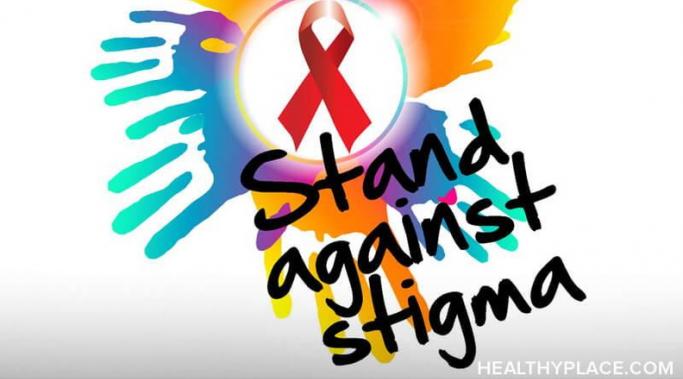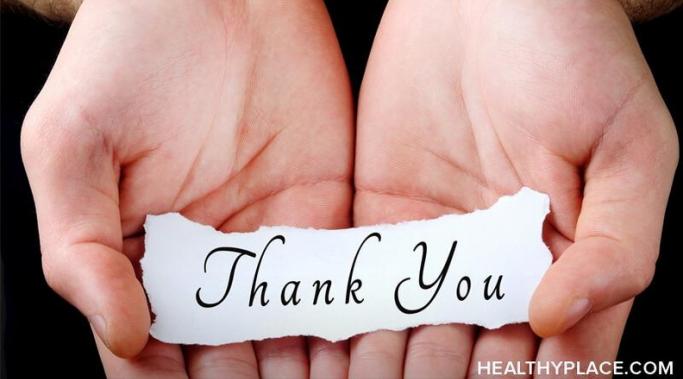The new year is approaching quickly and it is a perfect time to discuss working to reduce mental health stigma in the media. Mental health is one of the most relevant topics in present-day society. As a mental health advocate and a young adult with bipolar 2 disorder, the main change I hope to see in mental health in 2017 pertains to the stigma of mental illness. A good place to start reducing mental health stigma is in the news media, addressing its negative portrayal of mental illness.
Mental Health for the Digital Generation
There are a variety of reasons why gratitude is good for our mental health. Gratitude simply means expressing feelings of thankfulness. During depressive episodes or in moments of deep despair it can be discouraging when people encourage you to be grateful for all you have. It causes feelings of guilt on the behalf of the depressed person. Mental health conditions such as depression or bipolar affect all types of people. Although a person's life may be filled with riches it does not eliminate the effects of depression. Nevertheless, our mental health can be helped with gratitude.
As a Millennial and mental health advocate, it is important to learn about technological advancements such as phone applications (apps) and their effect on mental health. There are new developments in science and technology aiding those struggling with a mental health condition (Time for Tech in Depression Treatment). Phone applications and newer technologies are proof that more attention is being paid to mental health and the need for mental health funding and awareness. Check out these apps for your phone that can aid in good mental health.
Confronting weight gain on psychiatric medications is a major problem for many people consuming these types of medicines (Weight Gain in a Pill). It is almost as if the more your mental health improves, the more weight you gain. However, psychiatric medication weight gain can be coped with.
In a society that demands a perfect body and a perfect mind, it is no surprise to understand why it's hard to accept a diagnosis of a mental disorder. The lack of knowledge people have about mental health leads to minimal support for those struggling with a mental health condition. This is a challenge for many young adults who receive a diagnosis in which they know little to nothing about. The stigma of mental illness and the treatment for mental health conditions are two main reasons why it's hard to accept a diagnosis of a mental disorder.
The dating rules for revealing your mental illness are important to know when getting back into the dating scene. In general, dating can be nerve-wracking, but dating with a mental illness can cause even more anxiety (Should You Tell People You Have a Mental Illness?). The stigma of mental illness prompts insecurities and feelings of inadequacy when it comes to dating. Those of us with a mental illness may approach dates with the notion that we are damaged goods. The truth is, most people are insecure about dating. It is important to know the dating rules for revealing a mental illness to prevent added stress. A mental health condition does not make you flawed, or unattractive. It adds an authentic element to your life that challenges you but does not define you.
Healthy friendships have a positive effect on a person's mental health and understanding how to help a friend with depression are beneficial for both individuals. When a person struggles with depression, friends take a backseat during these low periods. Friends play an important role in our lives, and there are a variety of ways to help (Depression Poem for a Friend). It shows that depression not only affects the person struggling but those around them as well. This is why understanding a friend with depression and knowing how to help is important to maintaining a healthy friendship. The first step is learning what depression is and how it affects someone.
When I came forward about my diagnosis of bipolar II, I saw that, in spite of stigma, young adults talk about mental health. This is not an easy task for people of any age (Coming Out of the Mental Illness Closet). I was told revealing my diagnosis and opening up about mental health would diminish a lot of opportunities for potential careers and relationships in the future. As young adults, we are striving to be independent, find stability and happiness. It is a vulnerable period in life. The pressure of completing our education, finding jobs, and maintaining relationships is stressful and impacts our mental health. Talking about mental health is difficult in spite of stigma. However, many young adults are utilizing social media platforms to open the conversation about mental health and stigma.
The stress of premenstrual syndrome (PMS) and the impact on women's mental health is a topic that applies to women who fear this time of the month due to extreme emotional behavior and discomfort (Hormones and Women's Mental Health). A mental disorder, such as my diagnosis of bipolar, consists of high ups and low downs -- a disorder filled with extremes. The combination of PMS and a mood disorder is riskier than PMS without a mental disorder. Recently, I have noticed as I near menstruation, depressive thoughts and emotions intensify to an extent that concerns me. To add to the apprehension of this monthly upheaval, there are serious disorders related to PMS that have major impacts on women's mental health.
Coping skills are important, and exploring unique coping mental health skills for bad days is key to recovering from a low period (You Can Practice Self-Care on a Budget). Being that no exceptional set of guidelines exist to rely upon when it comes to coping skills, it is important to explore unique ways to creatively cope with bad days.









